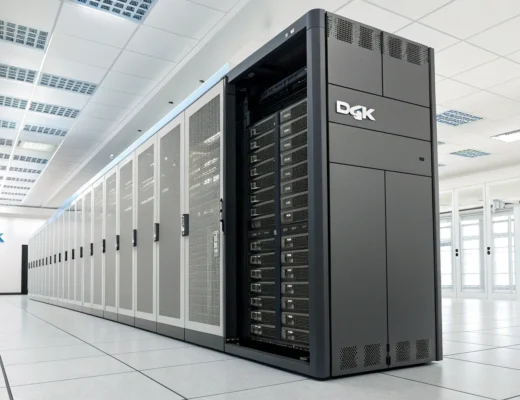The renewable energy industry continues to experience rapid growth due to numerous factors, including technological advancements, increased funding for research and development, and a global focus on reducing reliance on fossil fuels.
Advancements in the Renewable Energy Sector
Solar, wind, and hydropower are some of the renewable energy sources gaining traction worldwide, with improvements in efficiency and accessibility driving this progress. This shift towards more
sustainable energy practices has encouraged the emergence of innovative business models, policies, and environmental solutions.
Experts’ Anticipation Regarding Renewable Energy Technologies
Industry professionals predict even further progress in renewable energy technologies in the years ahead. These innovations could lead to a decrease in greenhouse gas emissions, contribute to mitigating climate change, create new job opportunities, and result in significant long-term economic benefits. Transitioning to renewable energy sources also promotes global collaboration for technological advancements and knowledge sharing, fostering sustainable growth and development worldwide.
Cost Reductions in Solar Power Production
A crucial component contributing to the renewable energy sector’s progress is the consistent decrease in solar power costs. Enhanced photovoltaic cells and large-scale manufacturing have made solar power production significantly more cost-effective. These factors have led to increased adoption rates of solar energy by individuals, businesses, and governments, establishing solar as a vital player in the global shift toward greener energy solutions.
Growing Solar Panel Installations
Thanks to the cost reductions in solar power production, more people and businesses can now
install solar panels and benefit from the financial and environmental advantages they offer. Government initiatives and incentive schemes also play a vital role in promoting solar energy adoption. The increased availability of affordable
solar panel installation has led to a remarkable shift towards sustainable energy practices across various industries, contributing to global efforts in combating climate change and fostering economic development through the creation of new jobs in the renewable energy sector.
Wind Energy Innovations
Wind energy has also witnessed significant advancements in recent years. Improvements in turbine design, materials, and construction techniques have resulted in lower production costs for wind energy. Consequently, an increasing number of countries are utilizing wind power to reduce their dependence on fossil fuels and shrink their carbon footprint. Expanded global wind energy capacity indicates a
trend towards more sustainable and eco-friendly power generation, promoting job growth and economic development in regions that have embraced this renewable energy source.
Hydropower Developments
Hydropower has experienced substantial innovations as well. Progress in small-scale hydroelectric projects has enabled communities that previously lacked access to this technology to harness its power. Smaller installations can be easily integrated into local water systems with minimal disruptions, providing an environmentally friendly and reliable energy source for small towns and rural areas. These advancements have also led to reduced ecological impact and improved efficiency, making small-scale hydroelectric projects a more viable and responsible option for electricity generation.
Improved Storage and Transmission of Hydropower Energy
Novel methods for storing and transmitting energy from hydropower sources have led to more efficient utilization of this renewable resource. Advancements in battery technology now allow for excess energy produced during periods of high-water flow to be stored for later use during lower flow periods or times of high demand. Upgrades to power grid infrastructure facilitate the seamless integration of hydropower with other renewable energy sources, contributing to a more resilient and sustainable energy ecosystem.
Government Policies and Societal Transition Towards Sustainable Energy
For the renewable energy sector to continue expanding, technological breakthroughs, government policy support, investment in research and development, and overall societal transition towards sustainable energy consumption are essential. While recent progress in renewable energy technology has made clean energy resources like solar, wind, and hydropower more efficient and affordable, further development requires global collaboration between governments and the private sector. Creating an environment conducive to innovation and providing financial incentives and infrastructure investments will ensure the continued adoption of sustainable energy sources.
The Potential of a New Age of Clean Energy Sources
When combined, these factors have the potential to usher in a new era of clean energy sources that can revolutionize the
way people live and minimize the effects of climate change. The widespread adoption of renewable energy technologies can lead to significant economic growth, create new job opportunities, and reduce reliance on fossil fuels. Additionally, transitioning to clean energy sources can improve public health by reducing air and water pollution, fostering safer and healthier environments for communities worldwide.
Urban Planning and Renewable Energy
As innovative technologies continue to emerge, various industries are transforming rapidly to adapt and thrive in an ever-changing world. One area that has experienced significant advancements in recent years is urban planning – a discipline focused on creating sustainable, efficient, and liveable cities for all. Integrating renewable energy technology within urban planning ensures that cities evolve to become more environmentally friendly, economically resilient, and healthier for their inhabitants.
Frequently Asked Questions
What are the main renewable energy sources gaining traction worldwide?
Solar, wind, and hydropower are some of the renewable energy sources gaining traction worldwide, with improvements in efficiency and accessibility driving this progress.
What are some benefits of transitioning to renewable energy sources?
Transitioning to renewable energy sources can lead to a decrease in greenhouse gas emissions, contribute to mitigating climate change, create new job opportunities, and result in significant long-term economic benefits. It also promotes global collaboration for technological advancements and knowledge sharing.
What has led to cost reductions in solar power production?
Enhanced photovoltaic cells and large-scale manufacturing have made solar power production significantly more cost-effective, leading to increased adoption rates by individuals, businesses, and governments.
What factors contribute to the growth of wind energy?
Improvements in turbine design, materials, and construction techniques have resulted in lower production costs for wind energy. This has allowed an increasing number of countries to utilize wind power to reduce their dependence on fossil fuels and shrink their carbon footprint.
How has hydropower technology advanced in recent years?
Progress in small-scale hydroelectric projects has enabled communities that previously lacked access to this technology to harness its power. Smaller installations can be easily integrated into local water systems with minimal disruptions, providing an environmentally friendly and reliable energy source for small towns and rural areas.
Why is government policy support and investment essential for the renewable energy sector?
Government policy support, investment in research and development, and a societal transition towards sustainable energy consumption are essential to drive further expansion and development of renewable energy technology. Collaboration between governments and the private sector helps create an environment conducive to innovation and provides financial incentives and infrastructure investments for the continued adoption of sustainable energy sources.
What role does urban planning play in promoting renewable energy?
Integrating renewable energy technology within urban planning ensures that cities evolve to become more environmentally friendly, economically resilient, and healthier for their inhabitants. This helps create sustainable, efficient, and liveable cities for all.
First Reported on: philanthropy.com
Featured Image Credit: Photo by Appolinary Kalashnikova; Pexels; Thank you!







